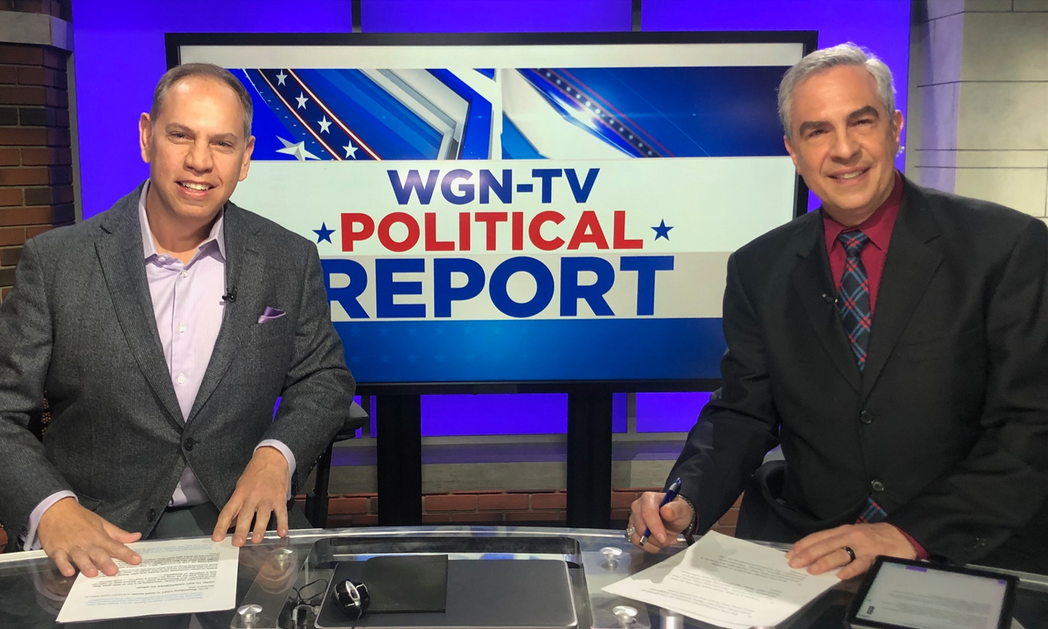I was out to dinner recently with a group of guys when one of them, a friend of a friend asked me: “Are you still doin’ all of that political stuff?”
I told him that if he meant working strategy or managing campaigns, not really. I said that nowadays I write and speak about it more so, but that I might be getting involved in an effort for the last two months of this election
Then he said to me: “So why do you like it? I mean, it’s so messed up. What is it, you think you can make a difference?”
He didn’t mean to sound sarcastic or judgmental He’s a really nice guy. So I tried to give him a thoughtful answer.
I told him that first of all, yes, it’s to make a difference. And I used the lived experience of my own life to explain why it matters.
When I was younger, I used to be totally into sports — both playing and watching. I went into sports broadcasting when I was 22, four years before switching to news.
It was when I made that switch and started covering news and politics that I lost most of my interest in sports. And the reason was that now I’d been witness to the ultimate form of competition. I haven’t read a sports page in 30 years.
The process of politics and who we elect to public office touches nearly every part of our lives. Folks can choose to not see that or to eschew their right to vote to affect the situation — but it’s true nonetheless.
Where can you park your car? How much will the ticket be if you don’t follow the rule. How much will the late fees be if you don’t follow that rule?
How much does your health insurance cost? If you have it at work and get terminated, how long can you carry it with you? Will it be the same quality? Does it cover everything you may need? Your family? And if you don’t have health insurance, why not? Who would have the power to change that so that you and your family are covered?
What’s the level of quality of your kids’ teachers? The facilities in their schools? Are they public schools? Is the education your kids are receiving on par with what other kids are receiving?
You get the point. Taxes, air and water quality, costs of college, civil rights, voting rights, public safety, local and federal infrastructure, immigration, guns, reproductive rights, equal pay for equal work — it’s a long, long list.
Every one of those policy issues, and another dozen related to each of them, gets decided by who we choose to decide them. It doesn’t happen in a vacuum. It’s a system. And we select the decision-makers.
Then I addressed his comment about it being “so messed up.” I told him that I agreed with him (90% of America does) and that I’d written a nonpartisan book five years ago indicting the ways in which our Congress gets elected and the “defective product” that it produces.
He seemed a little surprised. And he also thought it bolstered his question: If it’s so screwed up, why take a mad dash into that mess?
The answer is that no matter how tattered or dysfunctional our system of representative democracy has become, it’s still the ballgame. And to get what you want in that real-life game, you gotta climb into the ring and fight and scratch and claw to win.
Or you can just vote. Learn a bit about the candidates and what they stand for. And then cast a ballot on that basis.
I get completely fed up with politics, too. In fact, just about every other day. So I start writing about other stuff.
But I’m always drawn back to the big game. The one that generates big and small impacts on people’s daily lives.
I still watch and bet on real ballgames all the time. But even when I lose big, the stakes are tiny compared to wins and losses in politics. My bets cost me and no one else.
Elections in our federated system affect every single person who lives in our country. And that’s why I still feel that being involved in it — on any level — is a meaningful and relevant expenditure of my time.


